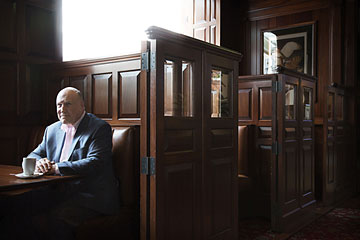
(4 of 4)
Putting aside the effect on employment, many economists agree that a higher minimum wage is an imperfect tool for reducing poverty. "If you are going to make the world better for low-wage people, there is going to have to be some cost. There is always a cost. There's no totally free lunch usually," concedes Card. According to the CBO's estimate, 29% of earnings from the higher wage would go to workers in families earning three times the poverty threshold. Expanding the earned income tax credit--a benefit to poor and middle-income families that is held up by opponents of the minimum wage as a better poverty-fighting tool--would be more efficient, the CBO found.
As for Berman's argument about the threat of technology, economists say they don't yet know how it will affect employment in the future. It wasn't analyzed in the CBO report. "Mechanization is coming fast. That makes it a little frightening," says Harry Holzer, a professor of public policy at Georgetown and former chief economist for the Department of Labor under President Clinton. Holzer supports Obama's proposal to raise the minimum wage. "I've no doubt Berman will try to scare people," he says, "but I can't completely dismiss that issue. I wish friends on the left would acknowledge the possibility that the future might look different from the past." In other words, Berman is framing the issue in terms that have yet to be fully understood.
For now, the President's proposal doesn't appear to have the votes in Congress to pass--though a more modest increase, say to $9.00 an hour, might succeed. But ultimately a new minimum wage won't sink the economy. Neither is it a silver bullet for America's inequality problem--and to Berman, anyone who suggests otherwise has a decidedly less lofty purpose. "People who are proponents of a minimum-wage hike can look very sympathetic and very compassionate," he says. "The compassionate politicians that pass the laws don't have their fingerprint on the outcome."
